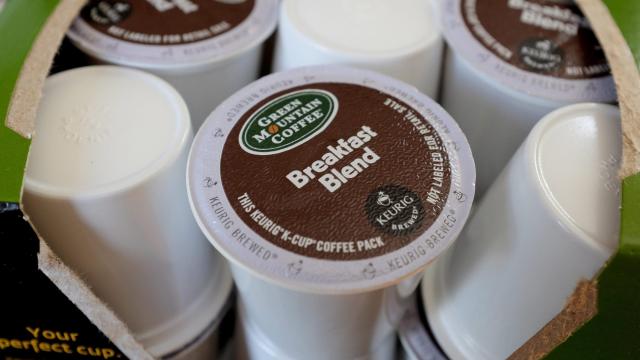It turns out the millions of machines that require single-use plastic coffee pods aren’t great for the environment, and Keurig is finally getting roasted for it.
The Competition Bureau, a regulator in Canada tasked with snuffing out deceptive business practices, said Keurig Canada will pay a $US3 ($4) million penalty for not being transparent about the recyclability of its products.
The bureau said on Thursday that it and the company had voluntarily reached a settlement to pay the penalty plus give an $US800,000 ($1,116,640) donation to an environmental charity and cover $US85,000 ($118,643) in Competition Bureau expenses, according to CTV News citing The Canadian Press.
Keurig was investigated for claiming customers could recycle its pods by removing the aluminium foil lid and dumping out the coffee grounds. The bureau found the instructions to be insufficient for the pods to be widely accepted into recycling programs and noted that Quebec and British Columbia were the only provinces recycling K-Cups.
Along with the fee, Keurig Canada has to change its packaging, publish notices about the changes on its website, social media platforms, and in national media outlets. And if that doesn’t do enough to inform customers, the company must also place new recycling instructions in its Keurig brewing machines and send an email out to subscribers of its service.
Cynthia Shanks, Keurig Canada’s senior director of communications and sustainability, told the Canadian Press that Keurig swapped the plastic used for its pods for one more commonly accepted at Canadian recycling centres three years ago, but admitted that they aren’t recycled everywhere.
“The agreement with the Competition Bureau of Canada will further enhance our communications, reminding consumers to verify whether K-Cup pods are accepted in their municipality’s recycling program and, if so, any additional steps that may be necessary to prepare the pods for recycling,” Shanks said.
This also isn’t the first time Keurig’s K-Cups have brewed up trouble. Just last month, Keurig Green Mountain settled a California-filed lawsuit with a customer who similarly claimed the company was lying about its polypropylene K-Cups being recyclable. The details of the lawsuit haven’t been made public.
Still, you have to wonder how many of those little white pods will go on to terrorize the environment. The steps needed to make these pods recyclable will inevitably be ignored by office workers or at-home customers who have, for years, instinctively tossed these wasteful plastic cups into the trash. To put the issue into perspective, by 2014, enough K-Cups were sold to circle the globe 10.5 times, and most ended up in landfills.
Even when they end up in the recycling bin, there’s no guarantee the K-Cups get recycled, as the Canadian settlement makes clear. The U.S. recycling system is almost completely broken, and Keurig is just adding the trash piling up in landfills and being washed into the ocean. Maybe it’s time for the world to collectively agree to drink a proper cup of plastic-free joe.
